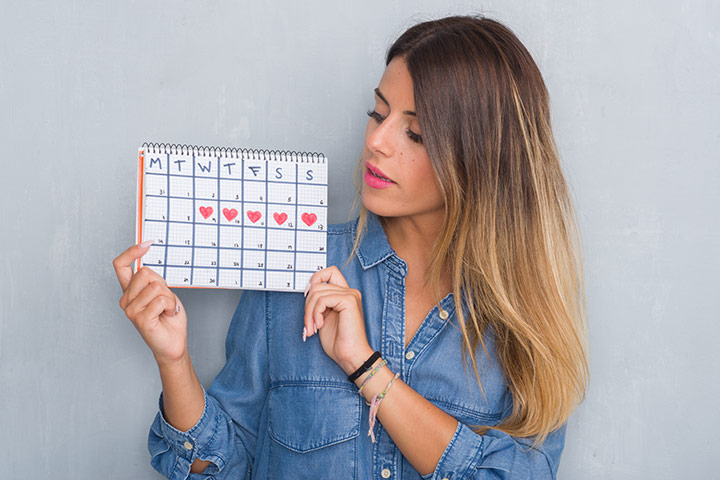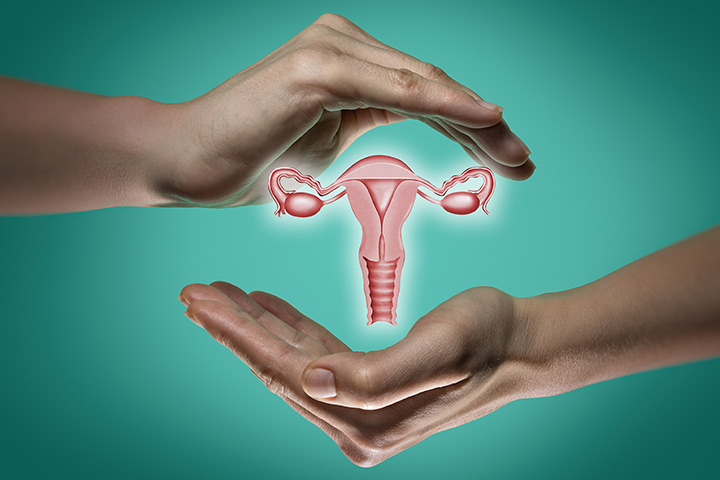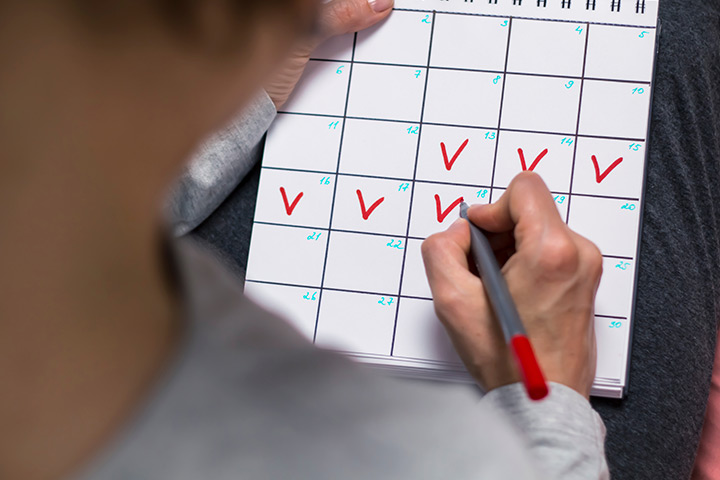
Image: Shutterstock
For every woman, pregnancy is a milestone that she eagerly looks forward to. And, the thought of holding the little one in the arms can make it harder to wait. Since the time I made the decision to have a baby, I feel the same way. But, being a woman who has always had irregular periods, there is always this question that bothers me. Will my irregular menstruation make it harder for me to become pregnant?
There are times when there is a gap of almost one and a half months, and then there are other times when there is barely a gap of two weeks. I always wonder how this affects my ovulation and whether it will affect my ability to conceive in any which way. Perhaps, that is why I decided to indulge in some research of mine. And, here is what I found.
What Does An Irregular Period Mean?
Let me begin by explaining what an irregular period means. First and foremost, not having a standard 28-day monthly cycle does not necessarily indicate that you are irregular. Only a small amount of women have the perfect 28-day cycle. And, for most women, this cycle can lie anywhere between 22 and 35 days. So, if the monthly cycle falls in this range and also lasts for about the same time in each instance, the periods can be considered as regular.
But, with irregular periods, it can become hard to keep a track of the monthly cycle. It is difficult to pinpoint the day on which the next period will arrive. This irregularity may be because of medical conditions such as eating disorders, extreme weight gain or loss, or even polycystic ovary syndrome (PCOS) (1). And, even if this is not because of a health disorder, it may still have an impact on fertility.
Can It Affect The Ovulation Window?
Usually, women keep a track of their ovulation by figuring out their monthly cycle. But, in the case of an irregular period, it is not easy to determine the ovulation date. For most women, the ‘ovulation’ process occurs somewhere between four days before and after the monthly cycle’s midpoint (2). But, think of it, if I am clueless about when my next period is going to be, how can I figure out my ovulation window?
Also, irregular periods often indicate that the ovulation is not taking place at all. Instead, a clinical condition called anovulation occurs (3). So, while the bleeding does occur during menstruation, it is generally not after the release of eggs. It is said that if a woman suffers from anovulation, she may not feel any typical menstruation pain such as cramps and the flow may be heavy or light.
But, even if someone ovulates occasionally, the unpredictability can make it hard to conceive. So, if a normal woman is ovulating around 12 times in a year, the women with irregular periods may only be ovulating around 6 times. And, that makes it half as likely for her to become pregnant. And, of course, figuring out those 6 times will be a challenge in itself.
So, How To Track Then?
Fortunately, there are still ways to figure out the ovulation schedule despite the irregular periods. One way to figure this out is by examining the cervical mucus. Suppose there is a lot of clear and sticky mucus, it indicates the midpoint of the cycle and possibly ovulation too (4). Of course, one can also use ovulation predictor kits, which detects the luteinizing hormone (LH) levels. These hormones are generally high during the time of ovulation (5).
Despite all of my research, I still felt that it is best to consult my gynecologist. I wanted to have an honest conversation about my period irregularity and its probable effect on my pregnancy. And, I knew that there was no one better than my doctor who could help me out with this. In fact, my doctor was also able to recommend some effective treatments for it. So, if you too feel anxious about the same, don’t hesitate and reach out to your doctor. Good luck!















